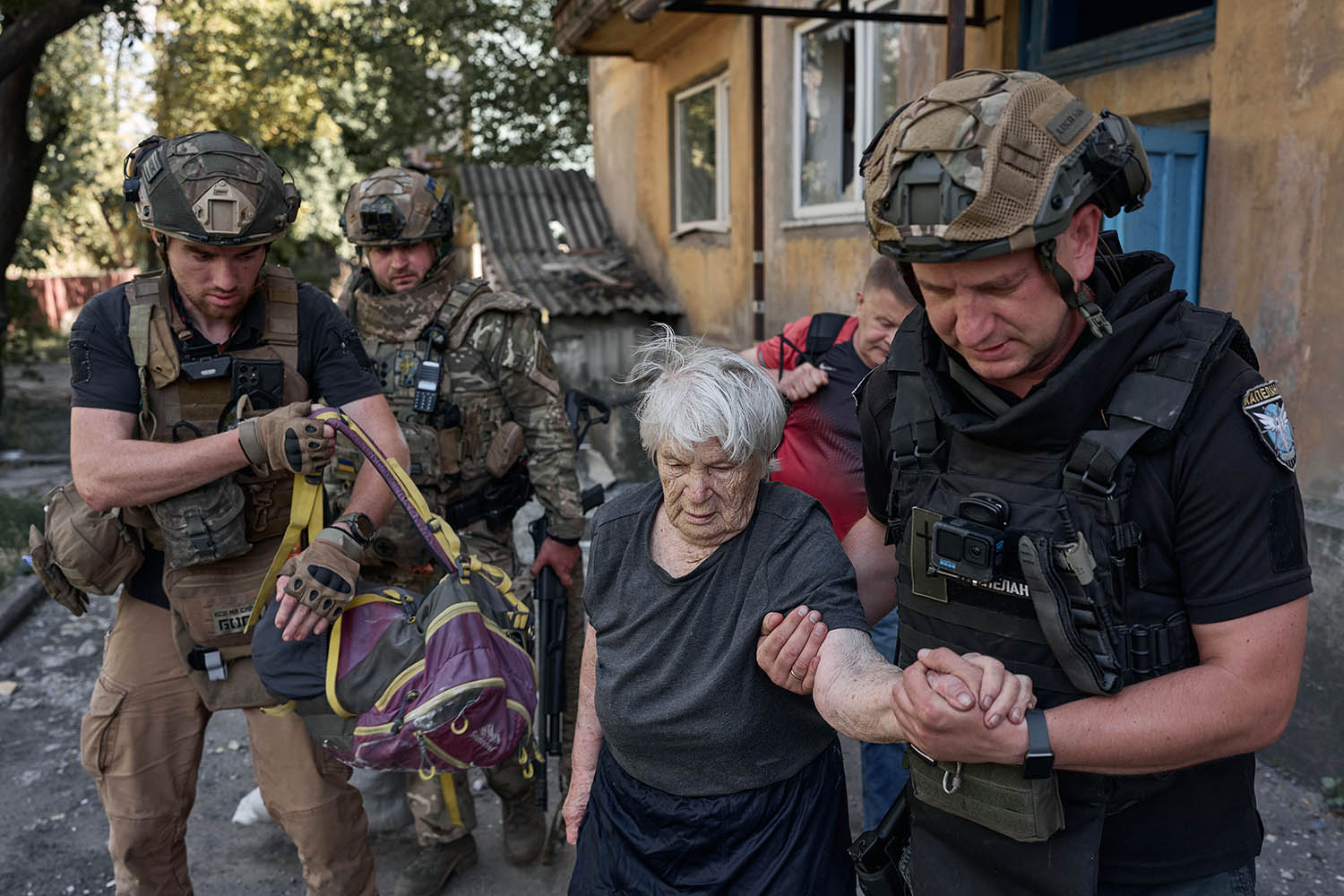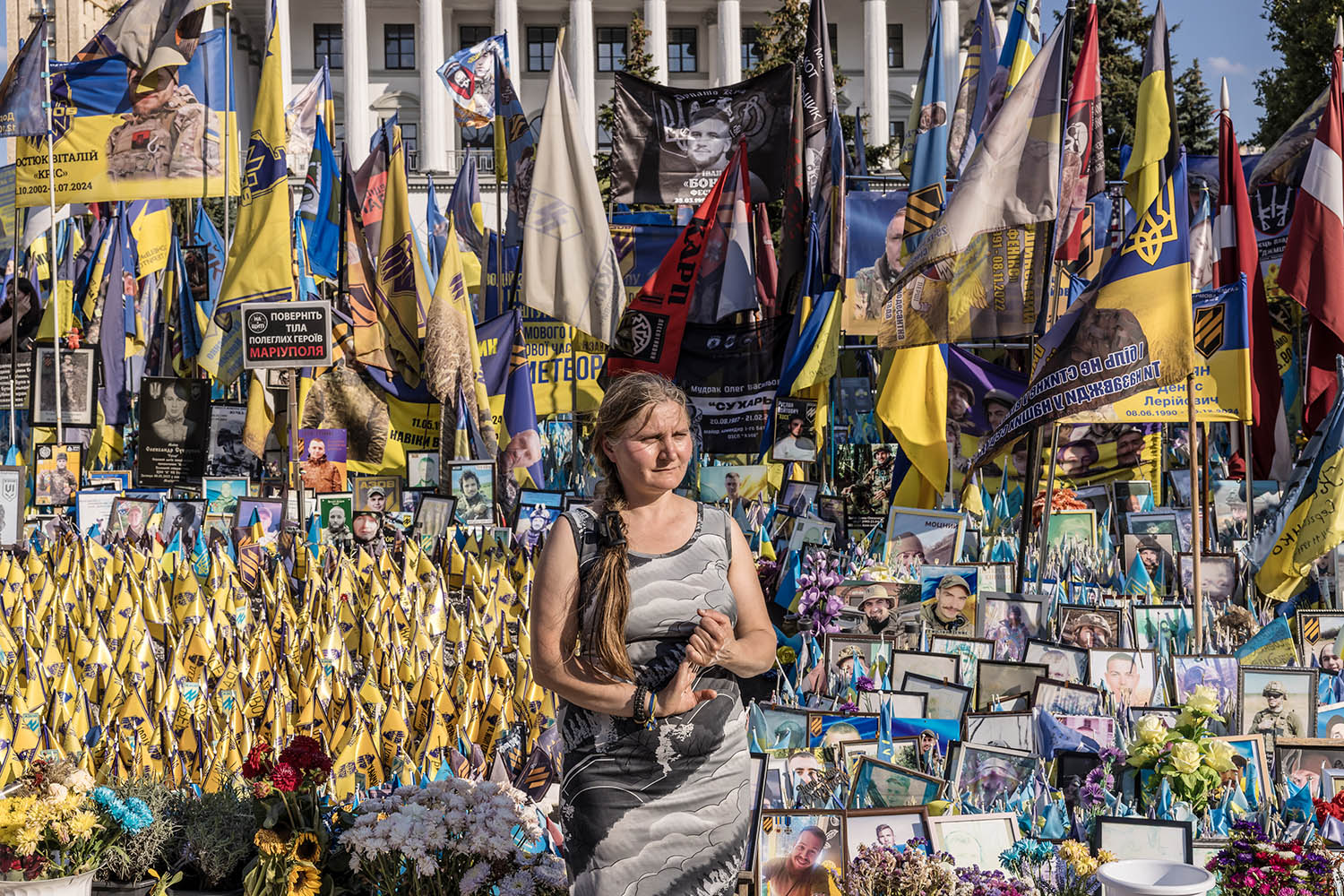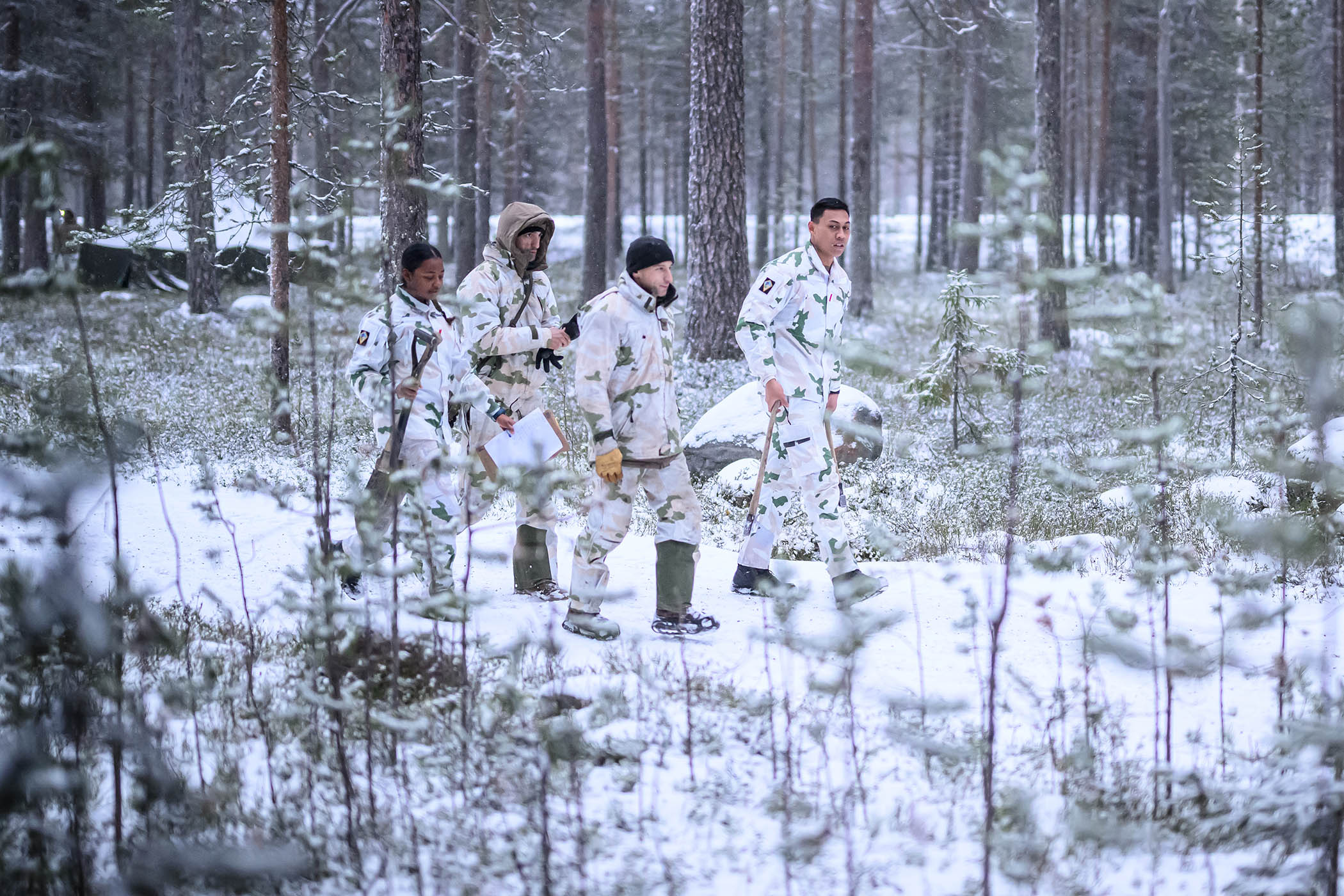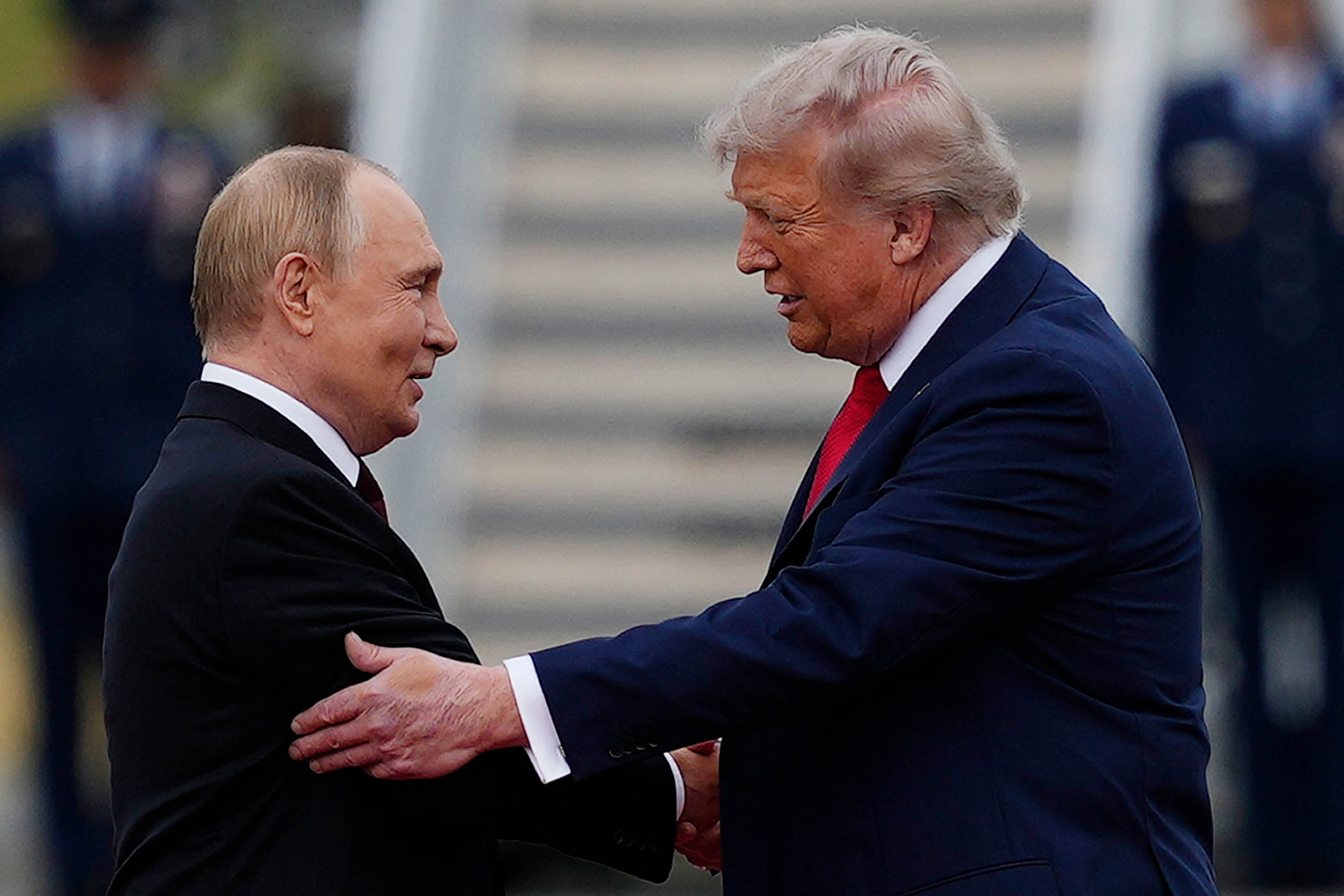Volodomyr Zelensky may have felt some sense of relief when he returned from his White House summit last Monday. His European allies appeared to have persuaded Donald Trump to agree to a “reassurance force”, and no demands had yet been made on what the US president had ominously referred to as “land swaps”.
But the mood in Kyiv one week on remains wary. There is a hunger for peace, though not at any price. And while Zelensky is still popular, his political rivals are beginning to mark out red lines they believe the president should not cross.
In an interview with The Observer, the country’s previous president, Petro Poroshenko, warned that peace could not come at the price of sovereignty. Speaking at the Kyiv courtroom where he was testifying in the latest hearing of his lawsuit against the man who defeated him in 2019, Poroshenko outlined what he said must be Ukraine’s red lines in the peace negotiations: no concessions on territory, language, European integration, security or the church. “Anything else is the subject of compromise,” he said, with a wry smile.
Poroshenko, who served as the country’s fifth president, between 2014 and 2019, is one of Ukraine’s most experienced voices when it comes to negotiating with Moscow. Elected after the Maidan revolution saw his pro-Kremlin predecessor ousted, he is credited with rebuilding Ukraine’s armed forces after the annexation of Crimea and the war in Donbas.
“We don't need anything from Russia. Just stop the war, stop killing Ukrainians, stop grabbing our territory, stop blackmailing us and get out,” he said.
In 2014 and 2015, the billionaire and former chocolate magnate signed the Minsk agreements, which sought to end the war in Donbas but failed to bring peace. The agreements lacked robust enforcement mechanisms and, without direct US involvement, allowed Russia to continue its aggression. This “ultimately led to the 2022 full-scale invasion,” Ukrainian lawyer Mykhailo Soldatenko wrote last week.
Poroshenko disagrees, however. He says the accords bought Ukraine vital time to rebuild its army – without which the invasion could have played out very differently – and to deepen its ties with the west. He believes the agreements were an “absolutely great success because it now means we don’t need anything from Russia”.
“We needed to buy time for me to build up the country, to build up the army, to build up the economy, to build up the defence industry, to build up an international coalition and to build up unity inside the country,” he said. “I’m proud that during my presidency, we freed more than two thirds of Donbas from occupation. Today it is less than 25%. This is because we stopped Minsk.”

An elderly woman is evacuated from her home in the Donetsk region
Since losing to Zelensky, Poroshenko has often clashed with his administration and the rivalry has played out in the courts. He has faced several investigations and legal proceedings under Zelensky’s government, which he says are politically motivated and a “clear characteristic of dictatorship”.
There are growing concerns about the concentration of power around Zelensky. Trust in him remains relatively high at around 60%, but it rests largely on international issues and his ability to gather support for Ukraine abroad; his standing on domestic issues is far weaker.
Despite Trump’s push for peace between Russia and Ukraine, the two nations seem no closer to a settlement. On Friday, Trump renewed a threat to impose sanctions on Russia if there was no progress in two weeks – it has so far maintained maximalist positions, rejected a ceasefire and continued to strike Ukraine with waves of missiles and drones.
Moscow’s demands are thought to include Ukraine’s withdrawal from the parts of Donetsk it holds, recognition of Russia’s occupation of five regions, demilitarisation and the expansion of rights for the Russian language and church. Trump has pushed for a trilateral meeting, but foreign minister Sergei Lavrov told NBC last week that Putin would only meet Zelensky “when the agenda is ready for a summit, and this agenda is not ready at all”.
Kyiv, meanwhile, has asked for international security guarantees and reiterated that it will not cede land or accept a deal that sacrifices its sovereignty.
In Kyiv, the talks have inspired little hope of an early end to the war. Social unity is seen as a vital part of the war effort and few are willing to express support for concessions. Most Ukrainians say they don’t trust Trump to have their interests at heart and do not believe Vladimir Putin intends to stop the fighting.
According to polls, most Ukrainians are in favour of a negotiated end to the war as soon as possible, but reject any peace plan drawn up on Russian terms.
Anton Grushetsky, executive director of the Kyiv International Institute of Sociology, said there is consensus that Ukraine should not officially recognise any part of the country, occupied or not, as part of Russia, although more than half would accept freezing the frontline as a compromise.
“Ukrainians want peace but they do not want peace at any price,” said Grushetsky. “They don’t fear the negotiations, but they worry about the loss of western weapons supply or being forced into a weak peace without real security guarantees as it would only open the way for a future invasion.”
Frontline communities, who live with constant shelling, are more open to freezing the line, but still reject territorial concessions or restrictions on Ukraine’s army.
‘We have all paid such a high price already, so how can we talk about more concessions?’
‘We have all paid such a high price already, so how can we talk about more concessions?’
Antonii, 20, former soldier
Antonii, 20, lives in Zaporizhzhia, close to the line of contact, but will have to move, along with his wife and small child, if a deal involves ceding Ukrainian-held parts of the region to Russia. “We have all paid such a high price already, so how can we talk about more concessions?” he said.
A former volunteer soldier, Antonii saw a close friend killed in front of him last year during fighting in the country’s south. “So many died and there has been so much sacrifice, so I don’t want to think about what a peace deal might mean,” he said. “But wars end with negotiation and concessions.”
This is the internal conflict that faces Ukrainians under the current proposals – people want peace, but they don’t want a deal that feels like surrender.
“For me, peace is victory – taking back Crimea, Luhansk, Donetsk and the others,” said Natalia Klymlyk, who volunteers at a makeshift memorial to fallen soldiers in Independence Square. Her nephew was killed fighting in Luhansk two years ago.
Retired army general Vasyl, 85, meanwhile, said he believed Ukraine can still win the war militarily with international assistance, but if there are to be concessions they must come with proper security guarantees that Russia can be held to.
“They must do it,” he said. “There needs to be a deal.”
Photograph by Oksana Parafeniuk/The Observer, Kostiantyn Liberov/Libkos/Getty Images
Newsletters
Choose the newsletters you want to receive
View more
For information about how The Observer protects your data, read our Privacy Policy


